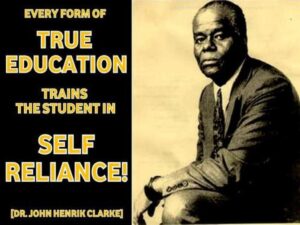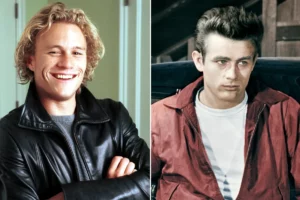Top 10 Interesting Trivia About US You Weren’t Taught in School
The past presidents of the United States are well known to us. These individuals all held the nation’s highest position for four or more years while serving their country, during which time they had to make difficult choices about a wide range of national and international concerns. Many are well-known to everyone and are frequently covered in civics and history studies, such as George Washington and Franklin Delano Roosevelt.
However, modern readers and amateur historians tend to overlook others, such as William Henry Harrison and Martin Van Buren. But there were a lot of fascinating aspects about each of these men, regardless of how they affected the current world or what their tenure in government left behind. Indeed, their choices and policies will go on indefinitely in history. There was a lot more going on in each of their lives, though, aside from the parts of their careers that made headlines. We’ll look at ten bizarre, surprising, and fascinating anecdotes from the president’s background in this list. You probably didn’t learn any of these facts in history class!
10. James Monroe won without opposition.
James Monroe and his running mate, Daniel D. Tompkins, were incredibly well-liked throughout the young country when the 1820 election came around. We don’t mean that only, say, 55% or 60% of respondents thought they could serve another term effectively. That is to say, all but one electoral college vote went to Monroe and Tompkins! In fact, Monroe didn’t really have any competition in the election because it was such an obvious blowout from the beginning. Early in America’s ascent, George Washington had also won the presidency in a single election. It never happened again, though, when Monroe ran unchallenged.All but one electoral vote went to Monroe so he could serve a second term in office in every state.
Voting for John Quincy Adams, unfaithful elector William Plumer was the lone non-Monroe vote cast. But that was more symbolic than anything, given that Adams wasn’t really a contender. For the rest of the nation, it was always assumed that Monroe would win reelection with little opposition and great public support.An intriguing fact about Monroe’s historically exceptional unchallenged reelection is that, for a full century later, he and Tompkins, as vice president, were the last two running mates to enjoy a second term as an incumbent ticket! No incumbent president was able to secure reelection from Woodrow Wilson’s 1916 victory with Thomas R. Marshall serving as vice president until James Monroe’s victory in 1820 against overwhelming opposition. It was definitely an odd tendency throughout the 19th century, especially in light of the large number of incumbents who have re-upped in subsequent decades.[1]
9. Dogs Bred by George Washington
George Washington is most remembered for being the first president of the United States and a hero of the Revolutionary War. He was essentially a made man in society at the time after serving from 1789 to 1797—an unquestionable legend that is still well-known today. We are also familiar with all the legends and factual accounts about him, including the ones about him down the cherry tree, crossing the Delaware, having wooden teeth, and helping the people of America in their hour of need. Beyond all of that, though, did you know that Washington had a side project that he was quite enthusiastic about?At his Virginia estate, the first president of the United States was a renowned dog breeder. He produced a large number of dog couples and pups by breeding a species of foxhounds that he dubbed the “Virginia hound.”
Washington listed approximately thirty foxhounds that he had deliberately and meticulously bred at his estate in northern Virginia, Mount Vernon, in his memoirs. Some even had amazing names. There was Tipster, Sweet Lips, True Love, and even a dog by the name of Drunkard.The legacy of Washington’s dogs also endures. Washington himself is recognized as the breed’s father by the American Kennel Club today. In fact, the first president was so well regarded for his breeding in the eighteenth century that he is still recognized for having influenced the American English coonhound, the treeing Walker coonhound, and the bluetick coonhound. Wow, what a legacy![2]
8. John Quincy Adams Accomplished Well
Between 1825 and 1829, John Quincy Adams presided over the country for four years. But his legal career continued long after he departed the White House and retreated from politics. And centuries later, he was still having a significant influence on American history in ways that would be debated, experienced, examined, and remembered.A Supreme Court ruling that they should be released and sent home resulted in the return of roughly thirty former American slaves to West Africa on November 25, 1841.
The historic Amistad case, in which a group of slaves traveling on a slave ship headed for the Western Hemisphere fought against their captors, served as the basis for that ruling. Beyond the actual violent uprising, a judicial process that led to the nation’s highest court was what followed.If you haven’t guessed it by now, John Quincy Adams was the attorney who played a crucial role in gaining the release of those prospective slaves. Adams argued in front of the nation’s top courts that the slaves should be liberated and sent home more than ten years after he had left office. After he made his case, Adams’s side prevailed.[3]
7. This Is Where Martin Van Buren Was Born
How well-versed in Martin Van Buren are you? It’s likely that you don’t know much. Van Buren, who served as president of the United States from 1837 to 1841, had a forgettable term in office and did almost little in comparison to many of the presidents who preceded him. At the time, his policies were also thought to have been a direct cause of the severe economic crisis. When he ran for reelection, he was soundly defeated. In fact, he lost so badly in 1841 that he was unable to win his native state. Van Buren was referred to as “Martin Van Ruin” by both vociferous opponents and dejected friends toward the end of his presidency. I apologize!However, Van Buren accomplished something that no other president had ever done before: he was an American citizen at birth. Given that presidential candidates are now obliged by the constitution to have been born in the country they intend to serve, that may seem like a very basic thing in this day and age.
However, such was not conceivable when the United States was first established. The nation’s founding fathers were, after all, born either in England or somewhere else, or in the New World but officially as British subjects because their dates of birth preceded 1776. Therefore, none could identify as “native” to their new country.That pattern continued for many years prior to Van Buren’s administration. The first future president to be born a “real” American, he was born in a small New York village in 1782, just a few years after the country’s independence was proclaimed. Thus, the fact that the remainder of his presidential legacy is so lacking doesn’t truly capture the whole picture. If nothing else, at least he was a (good) pioneer by birth![4]
6. William Henry Harrison Hardly Listed
If you ask “who” when you hear the name William Henry Harrison, we’ll sort of forgive you for it. Harrison served as the country’s ninth president, yet he hardly merits recognition. He was duly elected, having taken the place of the previously mentioned “Martin Van Ruin” in the 1841 campaign; nevertheless, he passed away nearly shortly after taking office. Harrison actually holds the record for the shortest presidential tenure in history. In the spring of 1841, just 31 days after his inauguration, he fell ill and passed away.Born in Virginia in 1773, Harrison was born just before the American Revolution. In his early years, he served as a military soldier and then as an officer. He then made the move into politics. He held a number of notable roles, including that of Ohio congressman, Indiana territorial governor, and U.S. senator from Ohio. When it came time for him to live in the White House, he was therefore well-versed in the workings of Washington. But it wasn’t meant to be, and he crumbled after only roughly six weeks in office. Vice President John Tyler swiftly assumed control of his position in turn.[5]
5. What a Bunch of Babies
William Henry Harrison’s vice president at the time, John Tyler, was unceremoniously thrust into action upon the leader’s passing a month into his tenure. Tyler didn’t show signs of stress related to the chance. Rather, he pushed to implement several of his own ideas in addition to Harrison’s planned ones. After that, he held the position for the next four years until returning permanently to his private life.However, we prefer to believe that Tyler’s lack of anxiety about taking over for Harrison stems from his prior exposure to actual stress. That means that during his lifetime, Tyler fathered fifteen children. Fifteen! That is not only an absurdly big family, but it is also the record for the most offspring any US president has ever fathered. What could possibly be worse than managing over a dozen yelling infants, naughty toddlers, and fussy teenagers? Would becoming president really be that bad?[6]
4. Zachary Taylor was not a voter
During the Mexican-American War, Zachary Taylor led American soldiers to a valiant and well-deserved victory at Buena Vista, making him a genuine military hero. Throughout his early years, the military leader and astute tactician ignored politics in favor of expanding his country’s sphere of influence and subjugating those he perceived as inferior. However, Buena Vista completely turned his life around—at least in terms of fame.After word of Buena Vista returned to the east coast, Taylor’s Mexican-American War skills became fuel for a rapidly developing political career in a matter of weeks. Calls for “Old Rough and Ready,” as he was nicknamed, to enter politics and guide the nation outside of the battlefield appeared almost immediately.That only had one issue: no one was really sure what his political views were. Taylor had never disclosed them, partly due to his lack of voting experience. In fact, he hadn’t cast a ballot in any election until he decided to run for and win the presidency in 1849! We’re hoping he cast his own ballot that year, but are we absolutely certain?[7]
3. Andrew Johnson Had Little Pals
At first, Andrew Johnson had no intention of becoming president of the United States. As a matter of fact, he didn’t take the position until after Abraham Lincoln was killed in 1865. When disaster struck with Honest Abe, Johnson was planning to take over as vice president. Therefore, Johnson’s entry into the White House in the spring of 1865 was somewhat of an unexpected surprise. And even more unexpectedly, after arriving, he made friends with a family of mice.You see, the majority of presidents prior to Johnson—and most, if not all, of those following him—kept a pet at the White House. These creatures, who are usually dogs but can also be cats, lead opulent lives. However, Johnson had different feelings on animals. He didn’t own any pets and didn’t bring any with him to the White House. He wasn’t alone, though!After moving in, he discovered that the famous political mansion was home to a family of mice. Previous presidents had taken action, using cats on the grounds or mouse traps, to eradicate the bothersome small animals. Not Johnson, though! The new president started showing concern for the underprivileged. He took care of them, fed them well, and kept an eye on them. In his letters, he even adopted the endearing habit of referring to them as “the little fellows.” As it happened, that ended up being a first for a president![8]
2. Life Nearly Ended for Ulysses S. Grant
Ulysses S. Grant rose to the top of the military hierarchy over a lengthy tenure before taking office in 1869. Naturally, his most famous position in his several army-related positions was that of a Union general in the recently fought Civil War. Many Americans were familiar with him, and during that turbulent period, they either loved (in the North) or hated (in the South) his efforts to defend the nation’s identity and ensure its future.Towards the very end of the war, however, Grant’s life path may have altered drastically. Grant and his better half were invited to Ford’s Theatre by Abraham Lincoln and his wife to see a concert on the tragic evening of April 14, 1865. Unfortunately, Grant and his spouse had to decline because they were already scheduled to see their children in New Jersey at that time.As everyone knows, Honest Abe met his demise in those box seats when Lincoln and his lady decided to go to the theater by themselves. How could post-Civil War America have been different if Grant had been present that night?[9]
1. Who’s Reaching Out?
President Rutherford B. Hayes made the decision to install the White House’s first telephone on May 10, 1877. The first successful phone call was made by Alexander Graham Bell just over a year prior to then. Thus, the White House was a leading venue for testing out the newest technologies available at the time. Hayes recognized the potential of this new technology for nationwide connection and desired to have a line available for speaking with individuals in the far.Thus, he gave his advisors the order to equip the home’s telegraph room with a large, new phone. The White House’s phone number was “1” back in those early days of phones. That is all. Nothing more than the solitary digit. It would take almost a century for area codes to become widely used after that. To be fair, years would pass before phones were truly used, despite Hayes’s vision.Since the White House was among the first to embrace the technology, they essentially had no one to call. But a large telephone exchange was installed in Connecticut around a year after the Pennsylvania Avenue installation. And that was all she wrote—er, called—after that.[10]
SEE ALSO: Top 10 Divinely Powerful Weapons From Celtic Legend




Chloe Vazquez